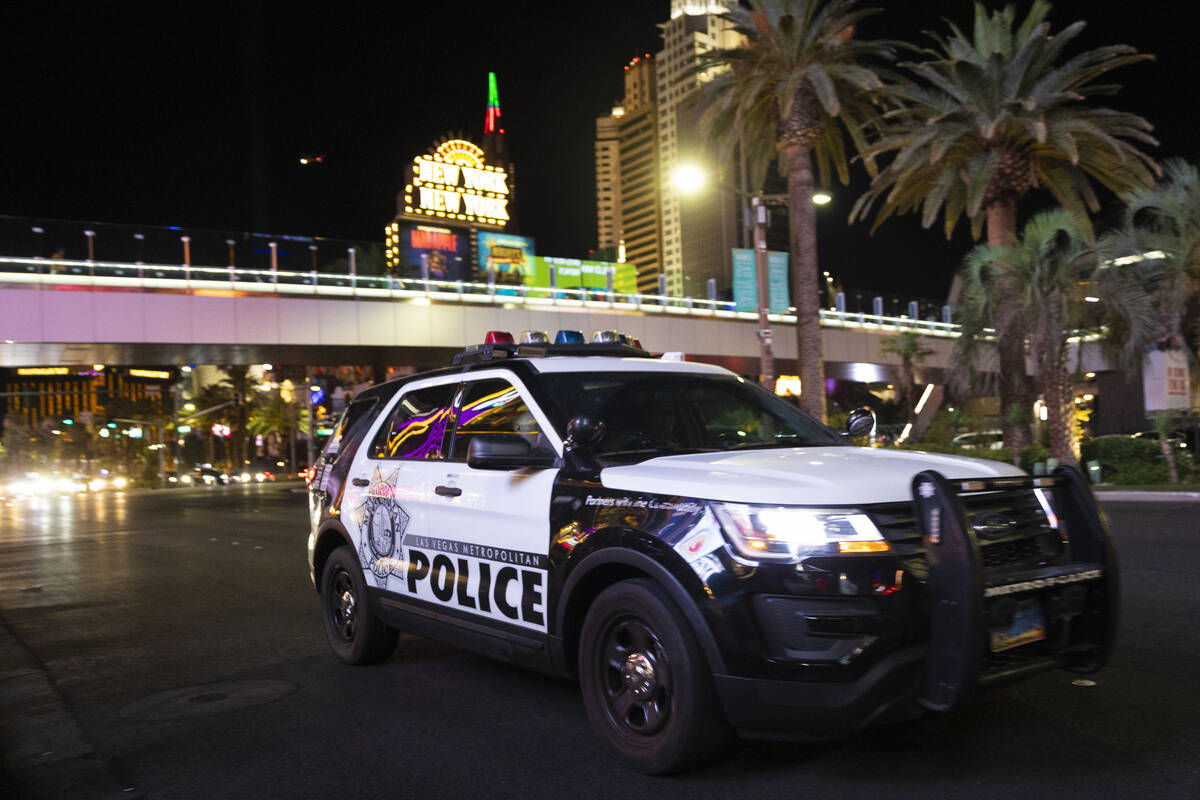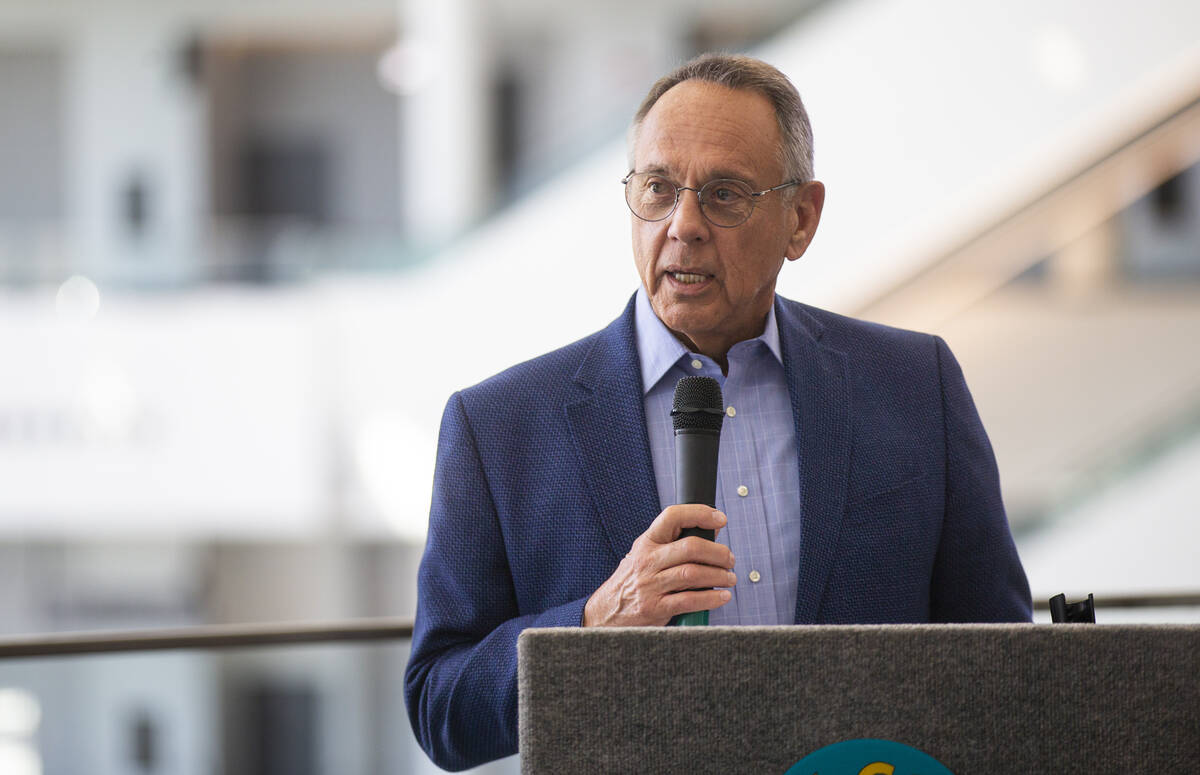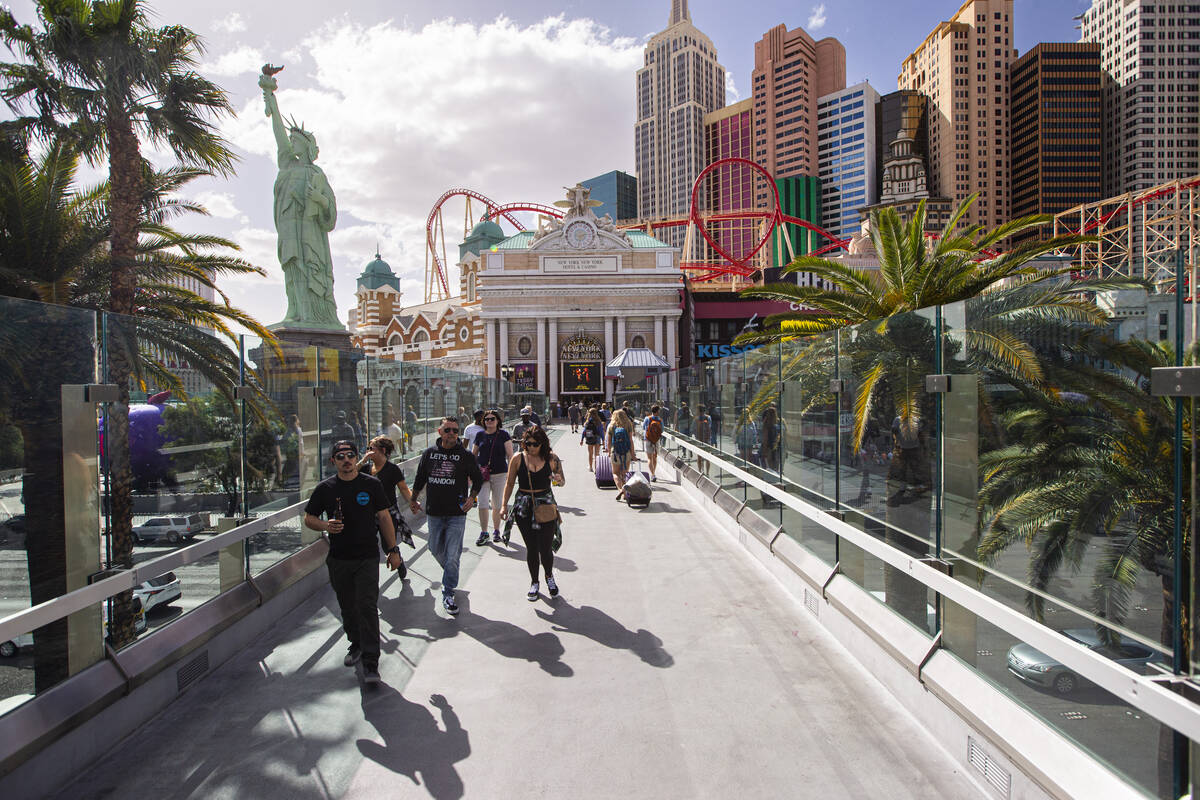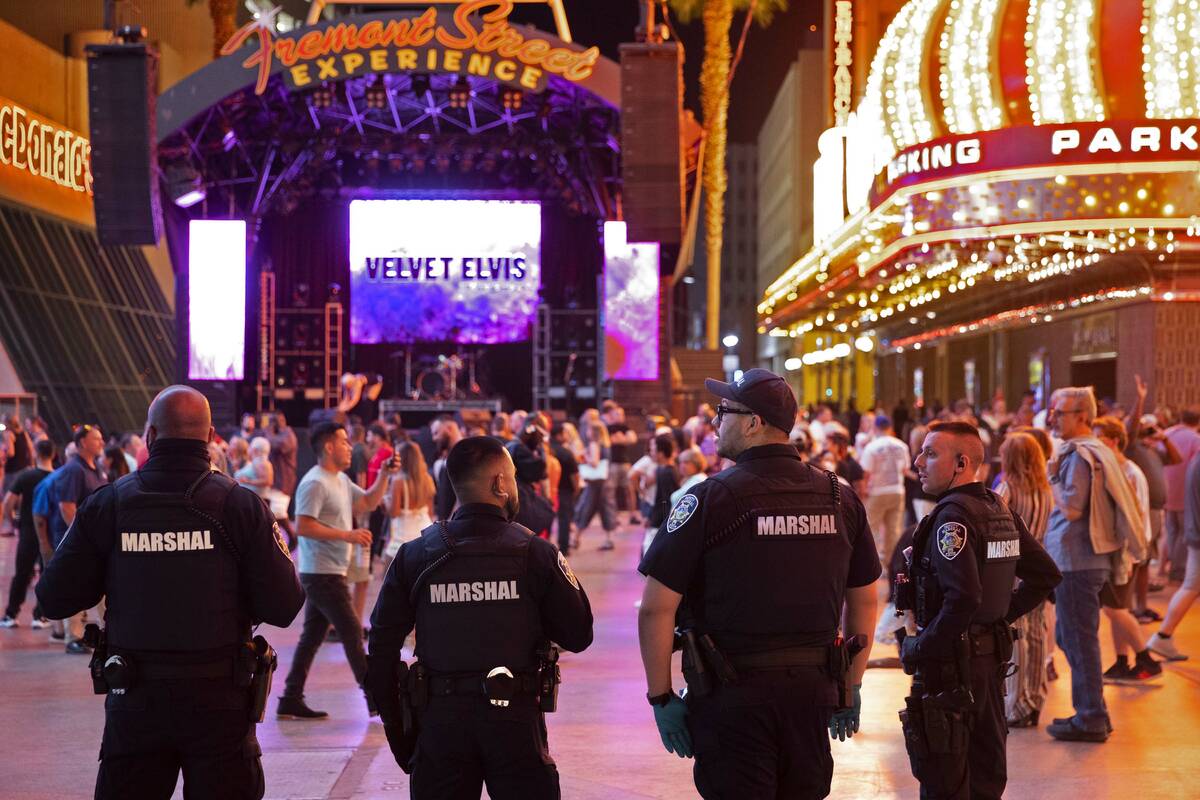Convicted criminals can be banned from Strip
Those individuals convicted of a crime and ordered by courts to stay away from the Strip and its surrounding commercial areas could soon face a misdemeanor arrest for violating the rule.
The expanded “order out corridor” ordinance — which the Clark County Commission approved in a unanimous vote Tuesday — supplants the stay-out zones that currently only apply to those convicted of prostitution and drug-related activities. Under the ordinance approved Tuesday, they will encompass all crimes, according to the new ordinance expected to be implemented later this year.
“What this ordinance does is it adds another layer of protection to the corridor,” commission Chairman Jim Gibson told reporters after the vote. “It gives the court an additional tool to help us give them an opportunity to clean (an offender’s) life up, if that’s what it takes.”
At the same time, Gibson said, the law “liberates the entire (Las Vegas) Boulevard from the influence from the people who commit crimes over, and over and over. So, our hope is that the order-out provision will be one of those incentives, or an incentive, to stop committing crime on the boulevard.”
While Las Vegas Justice Court judges can presently issue a stay-out order for prostitution or drug offenses at their own discretion, the new law expands those powers to all Clark County courts, according to the ordinance.
Under the new ordinance, the courts could only issue a stay-out order only upon conviction of a crime, which is typically handed down as a condition of supervised release, and the person would need to be in violation of the order to be subject to arrest.
Exceptions can apply for people who conduct essential business in the corridor, such as work, worship or even something as simple as taking public transportation to the area, the commission said.
Support from law enforcement
Clark County Sheriff Joe Lombardo spoke in support of the proposed ordinance before Tuesday’s vote.
“This is on the heels of an increase in disorder in the Strip corridor shortly after the reopening post-COVID and the stimulus money hitting people’s pockets,” the sheriff told the Review-Journal. “We had a significant change in demographics in the Strip corridor and increasing crime associated with that.”
As of Friday, the 12,123 crimes logged this year by the Metropolitan Police Department’s Convention Center Area Command, which patrols the Strip and its surrounding regions, was up 16 percent compared to the same time period in 2021, Metro statistics show.
The figure is being driven by a 46.1 percent increase in property crimes, according to the statistics. Crimes against people were down 10.5 percent, and “society” crimes — weapons, prostitution and drug violations — had decreased about 7 percent.
Lombardo said that the Strip is experiencing a “significant issue” on the pedestrian bridges.
“We brought all the players together on the Strip — the law enforcement community, the security community — and we said, ‘What can we do to address the particular issues associated with the Strip, our mother’s milk of our economy?’ ”
Curfew aimed at reducing crime
To quell a recent spate of violence along the Fremont Street Experience, the Las Vegas City Council, police and private security implemented new measures, including a curfew for unaccompanied people under the age of 21, increased police patrols, and bag and metal detectors checks.
In mid-July, after the efforts went into effect the first weekend, Metro said it did not receive any reports of violent crime.
There was no opposition to the new ordinance during the commission meeting, and Deputy County Manager Jeffrey Wells addressed concerns that the law would hamper street performers’ livelihood, explaining that the law would not change the current laws that govern sidewalks and bridges.
“Whatever they can do legally today, they can still do legally after this passes,” he said.
Gibson said it would take about three months for the law to go into effect.
“We need to do everything that we possibly can in order to keep, not just the safety along the boulevard, but the notion among those who visit here that it’s a safe place,” he said.
Review-Journal reporter Glenn Puit contributed to this report. Contact Ricardo Torres-Cortez at rtorres@reviewjournal.com. Follow him on Twitter @rickytwrites.

























